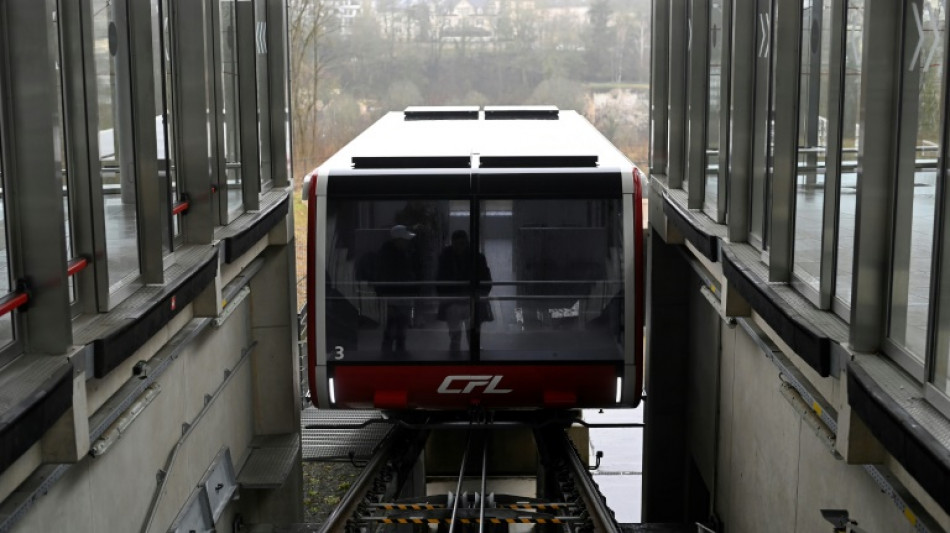
-
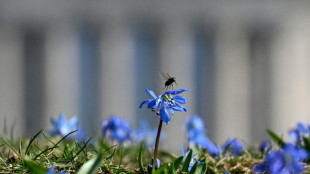 UK scientists fear insect loss as car bug splats fall
UK scientists fear insect loss as car bug splats fall
-
Mexico avoids recession despite tariff uncertainty
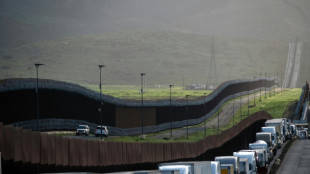
-
 Rwandan awarded for saving grey crowned cranes
Rwandan awarded for saving grey crowned cranes
-
Spurs have 'unbelievable opportunity' for European glory: Postecoglou
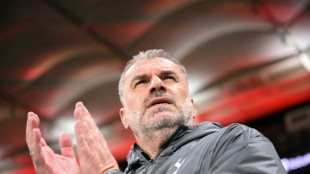
-
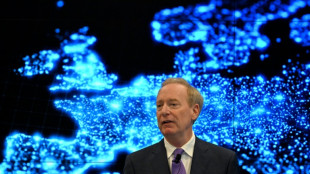 Microsoft president urges fast 'resolution' of transatlantic trade tensions
Microsoft president urges fast 'resolution' of transatlantic trade tensions
-
Poppies flourish at Tower of London for WWII anniversary

-
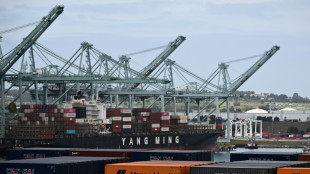 US economy unexpectedly shrinks on import surge before Trump tariffs
US economy unexpectedly shrinks on import surge before Trump tariffs
-
Stocks drop after US economy contracts amid tariffs turmoil
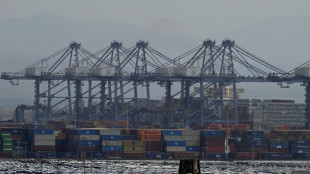
-
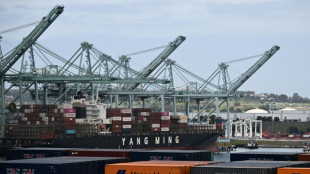 US economy unexpectedly shrinks on import surge ahead of Trump tariffs
US economy unexpectedly shrinks on import surge ahead of Trump tariffs
-
Dravid says Suryavanshi, 14, needs support from fame

-
 Arsenal can win 'anywhere' says Merino after Champions League defeat by PSG
Arsenal can win 'anywhere' says Merino after Champions League defeat by PSG
-
Bangladesh crush Zimbabwe by an innings in second Test

-
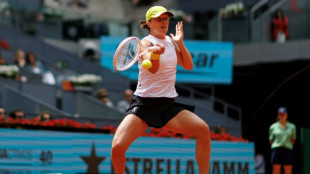 Swiatek recovers against Keys to reach Madrid Open semis
Swiatek recovers against Keys to reach Madrid Open semis
-
Spurs captain Son out of first leg of Europa League semi-final

-
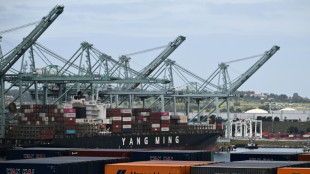 US economy unexpectedly shrinks in first three months of Trump presidency
US economy unexpectedly shrinks in first three months of Trump presidency
-
India to ask caste status in next census for first time in decades

-
 Burkina junta rallies supporters after claimed coup 'plot'
Burkina junta rallies supporters after claimed coup 'plot'
-
Forest owner Marinakis steps back as European qualification looms

-
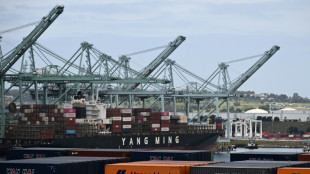 US economy unexpectedly contracts in first three months of Trump presidency
US economy unexpectedly contracts in first three months of Trump presidency
-
Bilbao will give 'soul' to beat Man United: Nico Williams

-
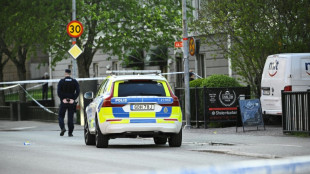 Sweden arrests teen after triple killing
Sweden arrests teen after triple killing
-
Pakistan says India planning strike after deadly Kashmir attack
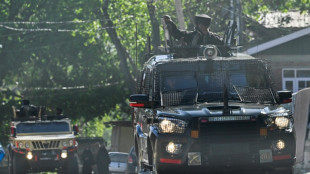
-
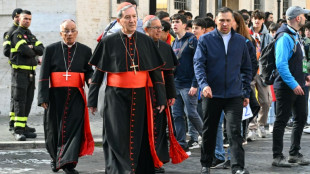 Cardinals lay groundwork for conclave, hope for quick vote
Cardinals lay groundwork for conclave, hope for quick vote
-
More automakers drop earnings guidance over tariffs
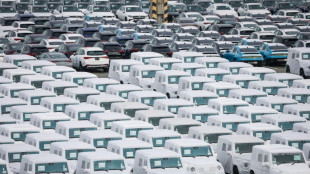
-
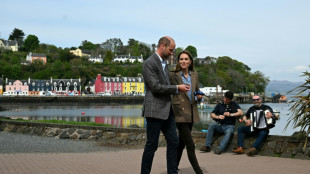 William and Kate release romantic image on low-key anniversary
William and Kate release romantic image on low-key anniversary
-
Israel says strikes Syria to shield Druze as clashes spread

-
 Champions Cup format 'not perfect' says EPCR boss
Champions Cup format 'not perfect' says EPCR boss
-
Iran hangs man as Israeli spy after 'unfair' trial: activists
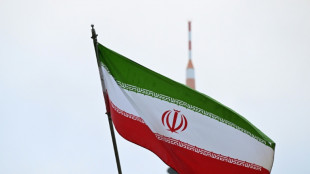
-
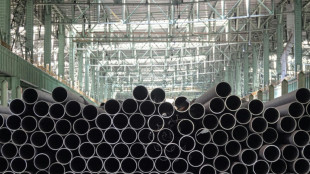 Stock markets mostly rise ahead of US economic data, tech earnings
Stock markets mostly rise ahead of US economic data, tech earnings
-
German growth better than expected but tariff turmoil looms

-
 Sinner denies beneficial treatment in doping scandal ahead of Rome return
Sinner denies beneficial treatment in doping scandal ahead of Rome return
-
Eurozone economy grows more than expected despite US tariff turmoil
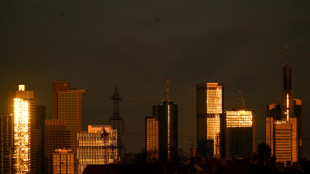
-
 Toulouse hooker Mauvaka out of Champions Cup semi
Toulouse hooker Mauvaka out of Champions Cup semi
-
Germany's next finance minister, 'bridge-builder' Lars Klingbeil
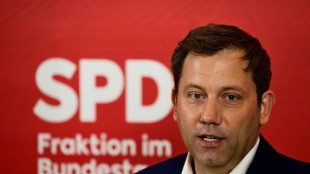
-
 Mehidy century puts Bangladesh in command against Zimbabwe
Mehidy century puts Bangladesh in command against Zimbabwe
-
Steelmaker ArcelorMittal warns of uncertainty
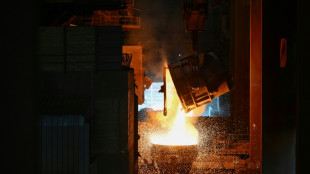
-
 Vietnam's Gen-Z captivated by 50-year-old military victory
Vietnam's Gen-Z captivated by 50-year-old military victory
-
Moroccan-based cardinal says Church does not need Francis 'impersonator'
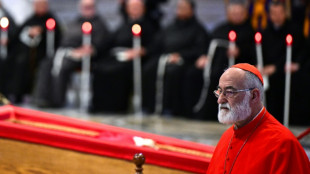
-
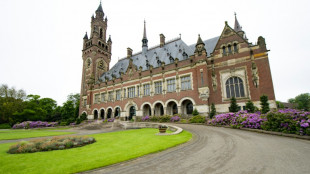 US official tells UN top court 'serious concerns' over UNRWA impartiality
US official tells UN top court 'serious concerns' over UNRWA impartiality
-
Jeep owner Stellantis suspends outlook over tariffs
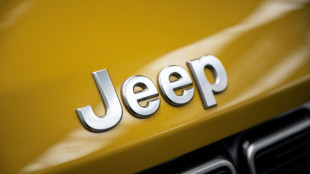
-
 New Zealand, Phillippines sign troops deal in 'deteriorating' strategic environment
New Zealand, Phillippines sign troops deal in 'deteriorating' strategic environment
-
Aston Martin limits US car imports due to tariffs
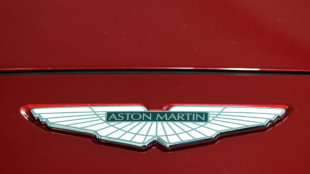
-
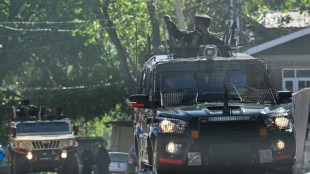 Pakistan says India planning strike as tensions soar over Kashmir
Pakistan says India planning strike as tensions soar over Kashmir
-
Australian triple-murder suspect allegedly cooked 'special' mushroom meal
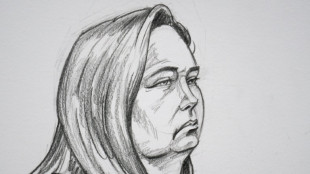
-
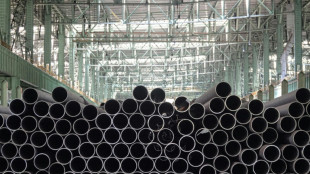 Most stock markets rise despite China data, eyes on US reports
Most stock markets rise despite China data, eyes on US reports
-
TotalEnergies profits drop as prices slide
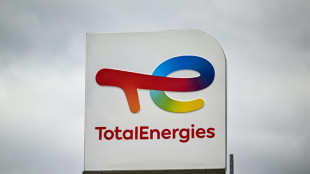
-
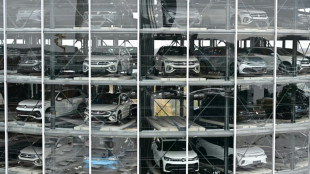 Volkswagen says tariffs will dampen business as profit plunges
Volkswagen says tariffs will dampen business as profit plunges
-
Jeep owner Stellantis suspends 2025 earnings forecast over tariffs
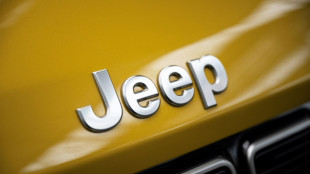
-
 China's Shenzhou-19 astronauts return to Earth
China's Shenzhou-19 astronauts return to Earth
-
French economy returns to thin growth in first quarter
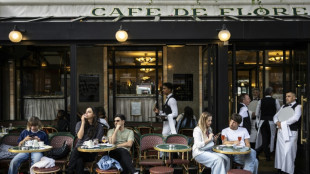

Even free transport can't shake Luxembourg's love of the car
Three years after Luxembourg declared all public transport free in a bid to clear its roads of jams and cut pollution, the car is still king of the congested Grand Duchy.
Traffic permitting, it is barely an hour's drive from Weiswampach in the far north of Luxembourg near the German and Belgian borders to Dudelange in the south, next door to France.
So the wealthy country of just 650,000 people appeared the perfect place for a bold experiment -- making public transport on trains, trams and buses free nationwide.
But Luxembourg, despite its lack of long-distance highways, has one of the highest rates of car ownership in Europe, with only Poland exceeding its rate of 681 vehicles per 1,000 residents.
Cross-border workers bring in tens of thousands more vehicles every day as commuters head to jobs in Luxembourg, and long-distance drivers often pass by to fill their tanks in a country with low fuel taxes.
"I often say that Germans build cars and Luxembourgers buy them," joked Deputy Prime Minister Francois Bausch, who is in charge of mobility and public works.
So, three years after ticket offices closed, there's no sign that Luxembourg has ditched the automobile for the tram, even if Bausch sees a thinning of traffic in the capital.
- Car culture -
"Car culture is truly dominant and it remains pretty tricky to attract motorists onboard public transport," mobility expert Merlin Gillard, of the LISER research institute, told AFP.
Luxembourg, along with the rest of the European Union, is attempting to transform itself into a carbon neutral economy by adopting green technologies in transport, energy, factories and farms.
Prime Minister Xavier Bettel's government is a coalition of liberals, socialists and greens, and it boasts of investing 800 million euros a year ($872 million) in public transport.
The duchy has Europe's highest-funded tram network per capita, costing 500 euros per person each year.
"It is the country that invests the most in Europe," Gillard acknowledged, "but Luxembourg is coming from far behind. We're making up for investment that has been very weak for years."
In Luxembourg city, a modern financial services centre built around an historic old town nestling in tight loops of the Alzette river, passengers appreciate the changes.
The central station is undergoing a thorough renovation, an ultra-modern funicular links the upper town to the riverside, and road lanes have been set aside for buses and trams.
Most of all, though, and uniquely in Europe: the network is free.
This, said Edgar Bisenius, owner of a financial services business, is the prime consideration when choosing between a car and the bus. "And it's very positive for the environment," he told AFP.
French teacher Ben Dratwicki travels around the capital by bicycle on personal business, but takes the funicular and the train to get to his school 20 kilometres (12 miles) north of the city.
"Transport is a basic right for residents," he argued. "If we have the right to work, we should also have the right to be taken to work, without paying over the odds."
But Dratwicki seems to be in a minority across the country, where traffic jams of private cars still block major arteries during rush hour.
Part of the explanation may be the 220,000 cross-border workers, vital to Luxembourg's economy, who arrive every day from neighbouring countries to enjoy higher wages... but a longer commute.
- Cross-border park and ride? -
The trains and buses they could board in France, Belgium or Germany are not free until they cross into Luxembourg, and many daily workers remain wedded to their cars.
Bausch, a Green, has a plan to help some of the French workers, who after all pay their income taxes in Luxembourg.
He aims to finance car parks on the French side of the border, and has promised that from 2027 or 2028 there will be a train from the French town of Thionville to Luxembourg every seven minutes.
Experts like Gillard, however, are sceptical, saying the problem is embedded in the underlying structure of the Luxembourg economy.
French workers can't afford rents or property prices in Luxembourg, but much of the cash they save by living at home is wasted on the busy and polluting commute to work.
J.Oliveira--AMWN